Professional Year Program: Ethics Case Study Analysis and Discussion
VerifiedAdded on 2023/01/18
|5
|771
|23
Case Study
AI Summary
This case study analyzes an ethical dilemma faced by James, a consultant hired by a web design company to assess employee skills. James is tasked with maintaining the privacy of individual employee data. However, a senior executive asks James to reveal individual performance. The analysis applies the ACS Code of Ethics, relevant Australian legislation (Privacy Act 1988), and McDonald's framework for ethical decision-making. The solution explores the importance of competency, professional development, and professionalism in the ICT industry. The case study provides a detailed evaluation of the ethical issues, including breaches of privacy and confidentiality, along with recommendations for how James should respond to the executive's request, emphasizing the need to respect employee privacy and professional standards. The conclusion highlights the need for maintaining a trustworthy environment for employees.
1 out of 5
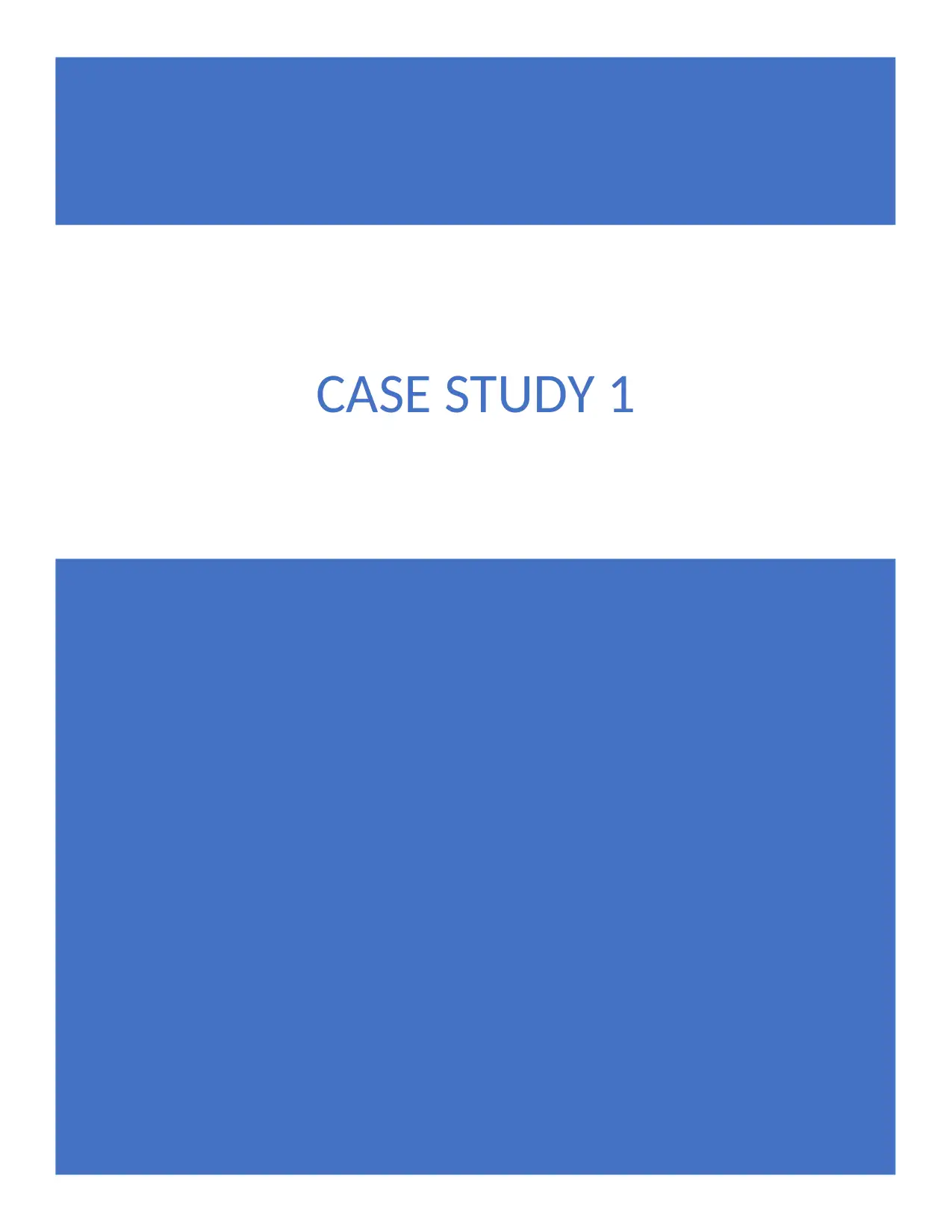
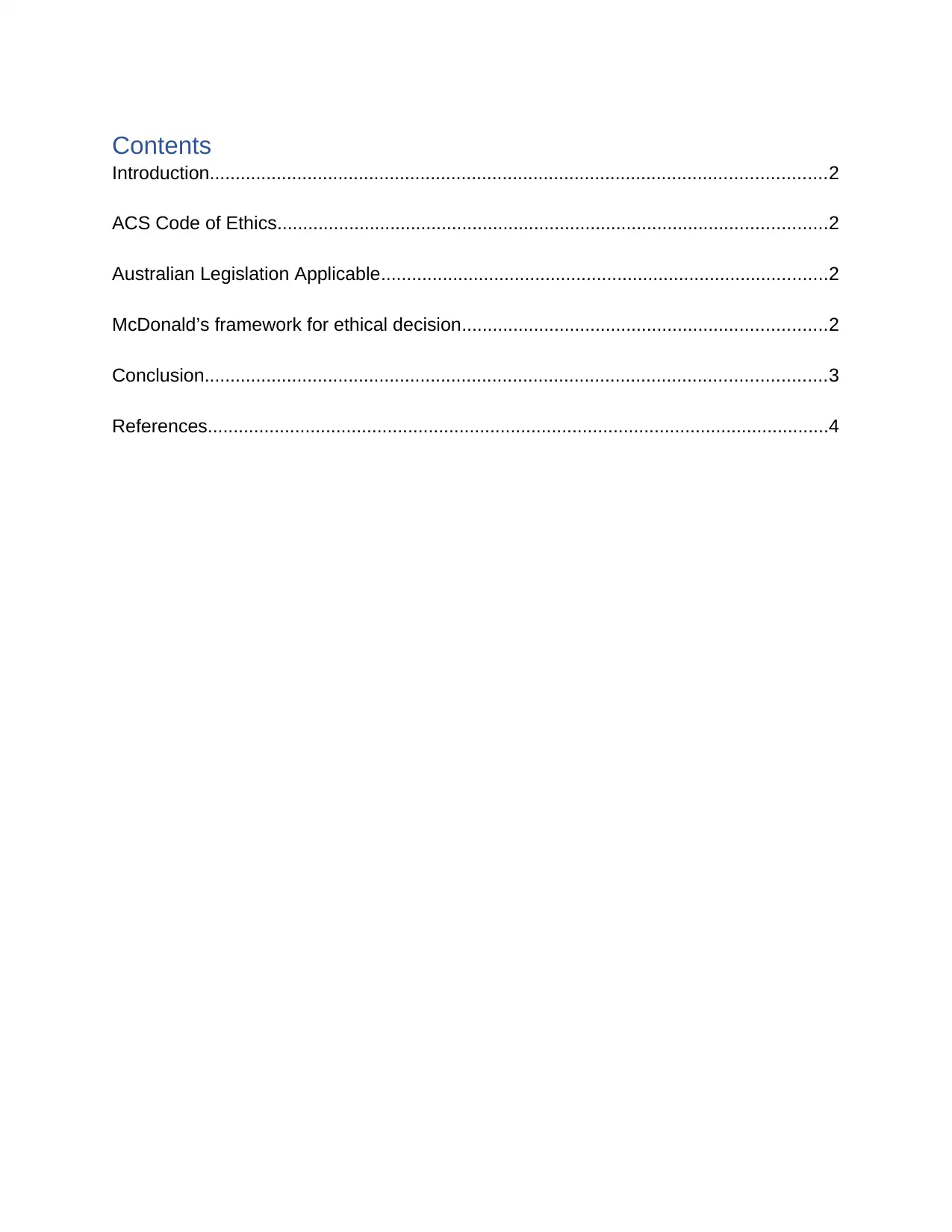
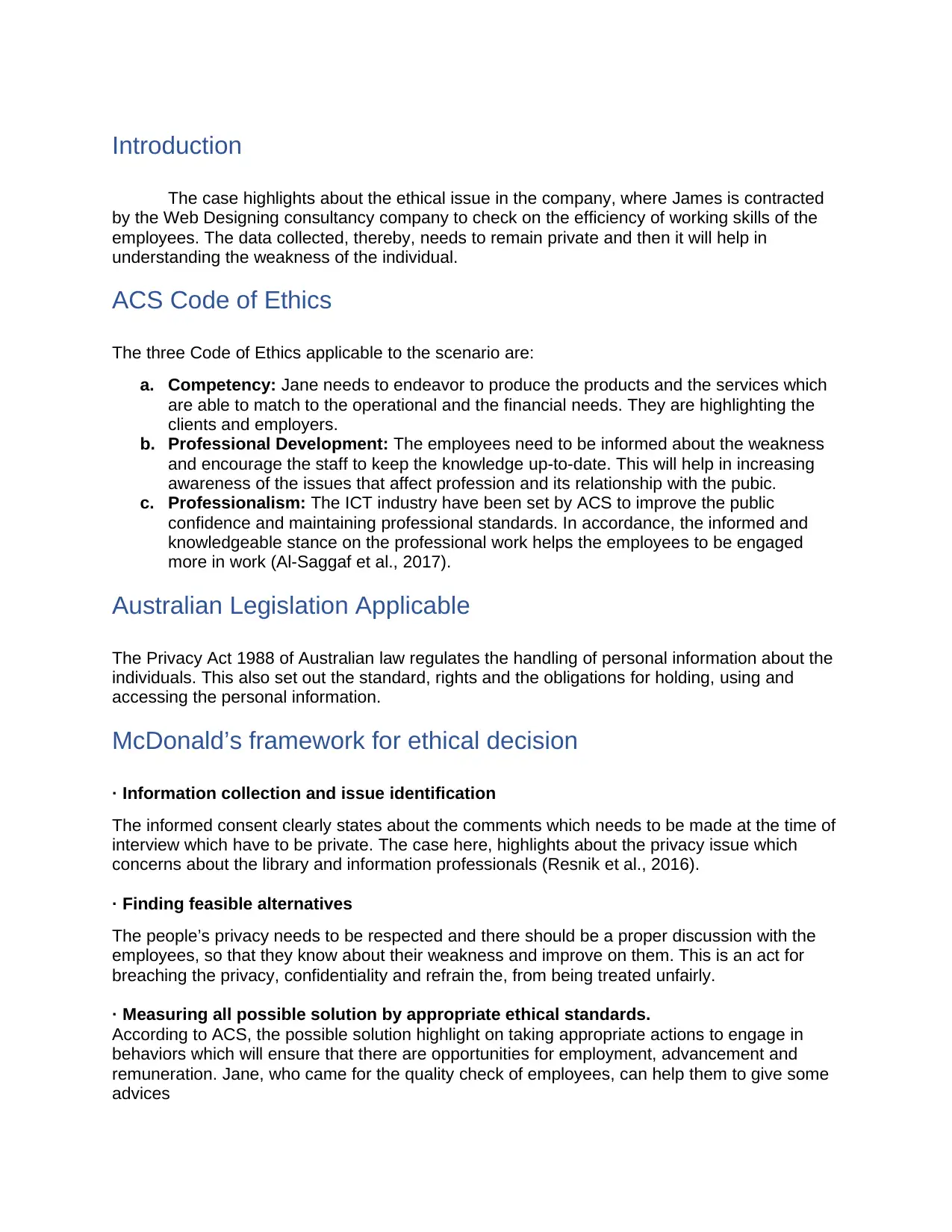

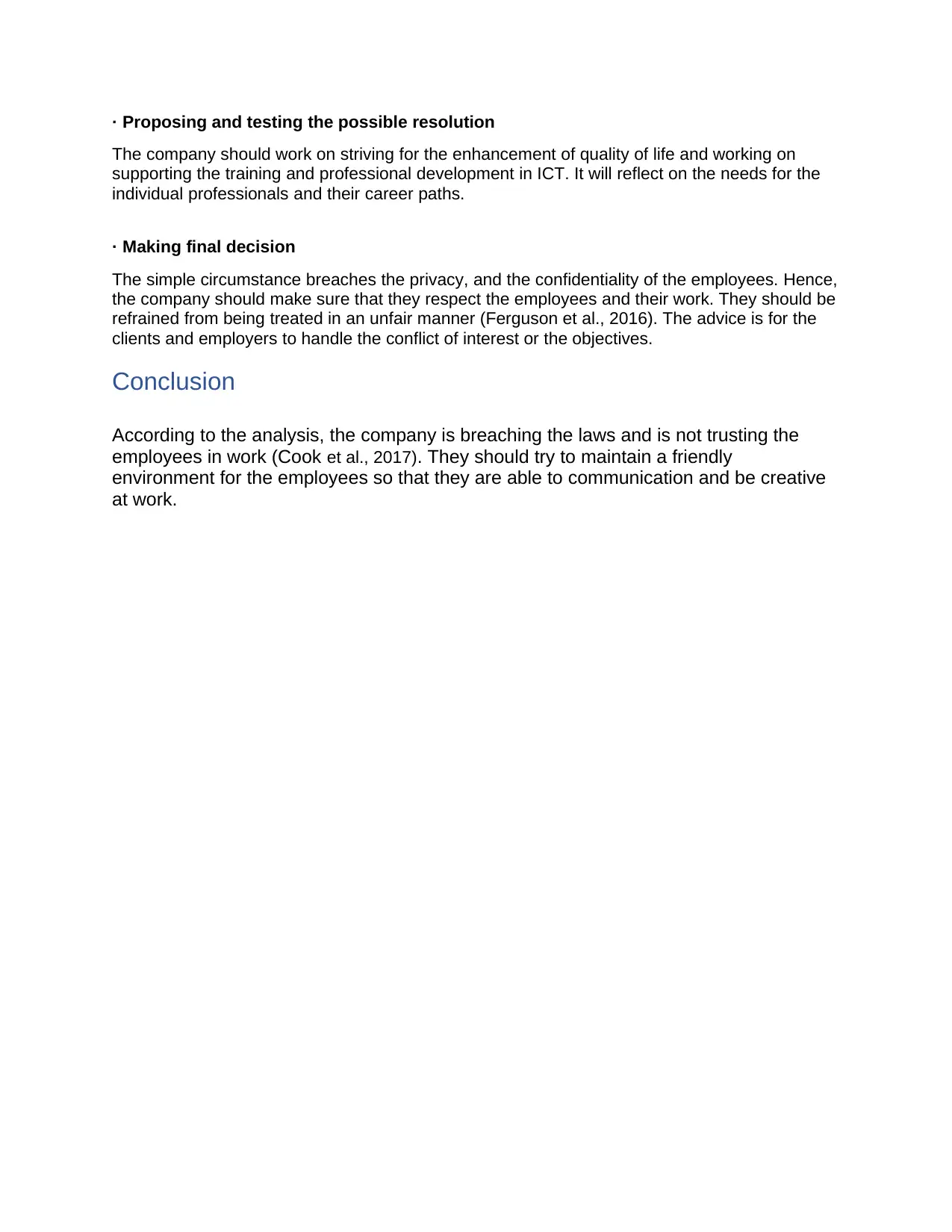
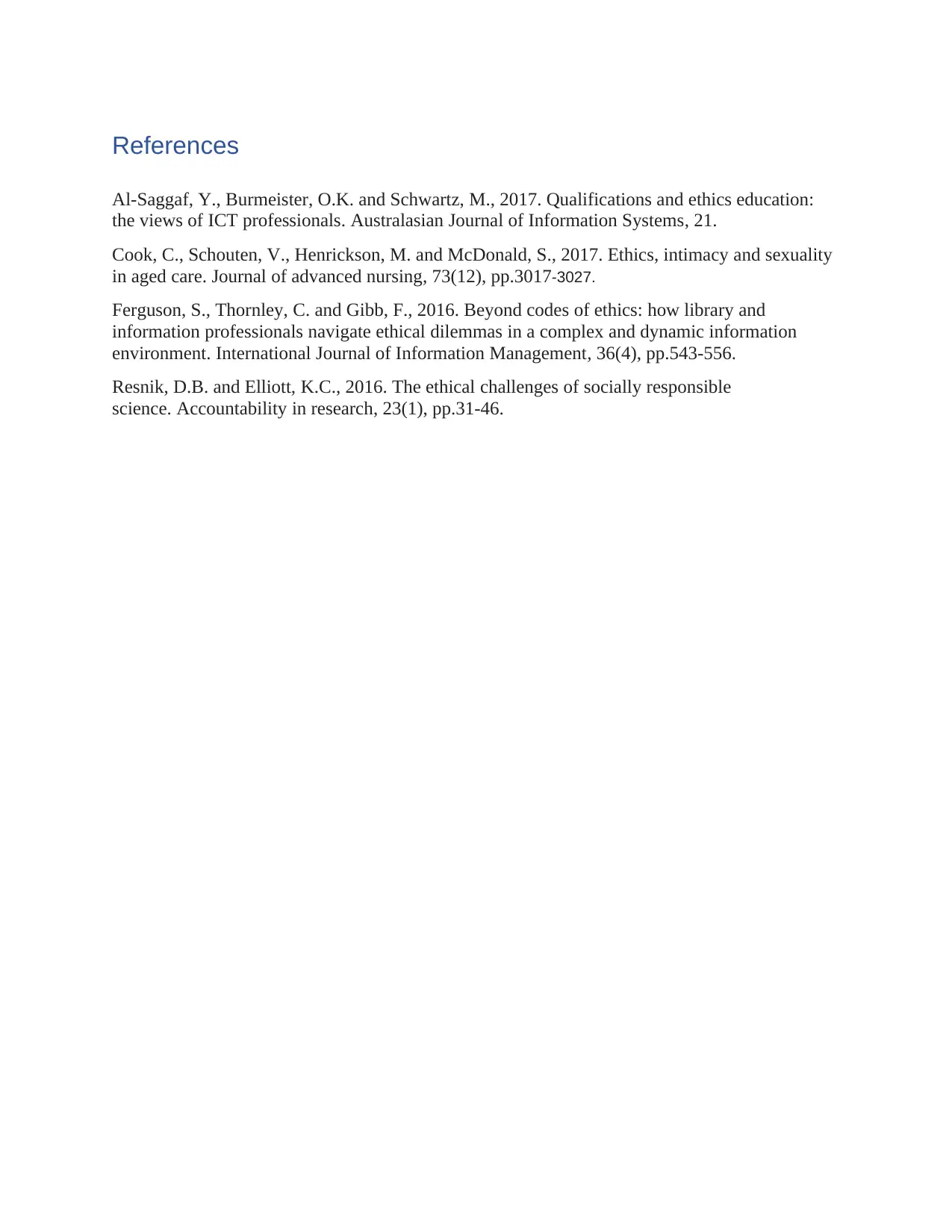






![[object Object]](/_next/static/media/star-bottom.7253800d.svg)